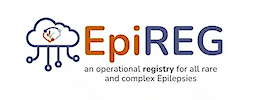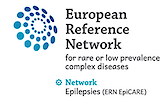Depression in Epilepsy
Nothing impacts the quality of life more than a depressed mood that persists for days and weeks.
Here you will find the most important information on the topic of depression and epilepsy. Watch our YouTube video on the subject or continue reading on this page.
To the video:
In an extensive survey, we found indications of a depressed mood in about 30% of our inpatients. The affected individuals feel down and hopeless; they lose interest in activities that previously brought them joy. They lack the energy for positive activities and withdraw from social interactions. Depression severely impacts the quality of life for both the individuals and their families. It is estimated that half of these individuals were experiencing a depression that required treatment.
With the following short questionnaire, you can assess whether you might have clinical depression.
How have you been feeling over the past two weeks?
| often | sometimes | seldom | never |
Life is a constant struggle. | 4 | 3 | 2 | 1 |
Everything I do is wrong. | 4 | 3 | 2 | 1 |
I feel guilty. | 4 | 3 | 2 | 1 |
I'd be better off dead. | 4 | 3 | 2 | 1 |
I am frustrated. | 4 | 3 | 2 | 1 |
It's hard for me to find joy in anything. | 4 | 3 | 2 | 1 |
Please add-up the scores: ____
A total value of over 15 is a sign indicating the possible presence of depression. Please speak with your physician!
Source: NDDI-E, Gilliam et al. (2006)
In very rare cases, the brain condition underlying epilepsy (such as limbic encephalitis) can directly cause depression or other psychiatric symptoms (like increased anxiety). Mood can be significantly affected before and after epileptic seizures. Additionally, some epilepsy medications can noticeably alter mood. This is often more noticeable to family members than to the individuals themselves, for example, when a new medication is introduced.
Mostly, however, depression arises from the interplay between personality, mood changes before or after seizures, and the consequences of epilepsy in the individual's life situation, such as job loss and financial worries, relationship problems, lack of a driver's license, and so on.
Especially for those individuals in whom seizure control cannot be completely achieved, the quality of life and the emotional well-being of the individual should be carefully monitored and taking into account when therapy planning
Even (brain-healthy!) parents of children with epilepsy suffer from depression much more often than the general population as a result of the high stress caused by the child’s illness. This is a phenomenon which generally occurs among relatives of chronically ill individuals.
Be sure to talk to your doctor if you notice any unusual changes in your mood. It may be necessary to adjust your epilepsy medication to improve your mental well-being.
What helps epilepsy patients maintain mental stability in spite of the challenges and consequences brought on by the illness?
- Never feel as though the illness has taken away your autonomy. Always make important decisions yourself.
- Live as normally as possible. Actively seek new opportunities if epilepsy has closed certain paths to you.
- Continue to participate in activities what you have always really enjoyed, even if there is the possibility of a seizure occurring (i.e. attending a concert). Driving an automobile and swimming are absolutely not advisable as long as seizures could occur.
- Get informed, ask experts if there is something you do not understand, search on the internet for helpful explanations, but don’t dwell on epilepsy. Try not to think too much about epilepsy!
- Spend time with those people that are important to you. Find hobbies that you can share with others. Perhaps you will find experiences companions and friends in an epilepsy support group. Physical and creative actives, as well as volunteering, provide strength to many people.
- Lastly, talk with your physician promptly if you experience a changed, depressed mood which does not fit with your personality or life situation.
It’s not surprising that the well-being of those individuals affected improves significantly if they were able to achieve long-term seizure freedom through medication or epilepsy surgery. The support of family as well as friends, neighbours and colleagues also plays an enormous role. What other therapeutic options are available?
Today, psychotherapy is the first-choice therapy recommendation. Cognitive-behavioural therapy is particularly suitable and many licensed psychological therapists are trained in this method.
Psychotherapy is a service covered by public health insurance. You can find suitable licensed therapists in your area through the Psychotherapy Information Service (www.psychotherapiesuche.de, Tel. 030 209166330), or the psychotherapist chamber of your federal state (www.bptk.de).
If you remain in a low mood in spite of therapy, it is advisable to seek treatment from a psychiatry specialist who can promptly help you in acute crisis situations.
Treatment with medication. Physicians with neurological as well as psychiatric specialization can suggest medication treatment, especially in cases of severe depression. Treatment with antidepressants has also proved successful in epilepsy patients and is appropriate for persistent symptoms, because:
- Antidepressants are not addictive.
- The success of the therapy can be assessed after approx. 4 weeks, i.e. a trial can be carried out at any time without any problems.
- No increased risk of seizures has been found in epilepsy patients taking antidepressants.
Good news to end on!
Most of those affected, together with their familes, are able to lead an (almost) normal life with a good mood – in spite of epilepsy and the occasional crises that arise. And if psychological problems become too overwhelming: do not hesitate to get in seek medical advised and effective treatment!
- In der 15. Folge unseres Bonner Epilepsie-Podcasts „Scharfe Welle“ geht es ausschließlich um das Thema Epilepsie und Depressionen.
Hören Sie doch mal rein!
- Schauen Sie sich auch unser YouTube-Video zum Thema Epilepsie und Depressionen an.
- Gute Informationen zum Thema Depressionen allgemeinen finden Sie auch bei https://www.deutsche-depressionshilfe.de/start




















